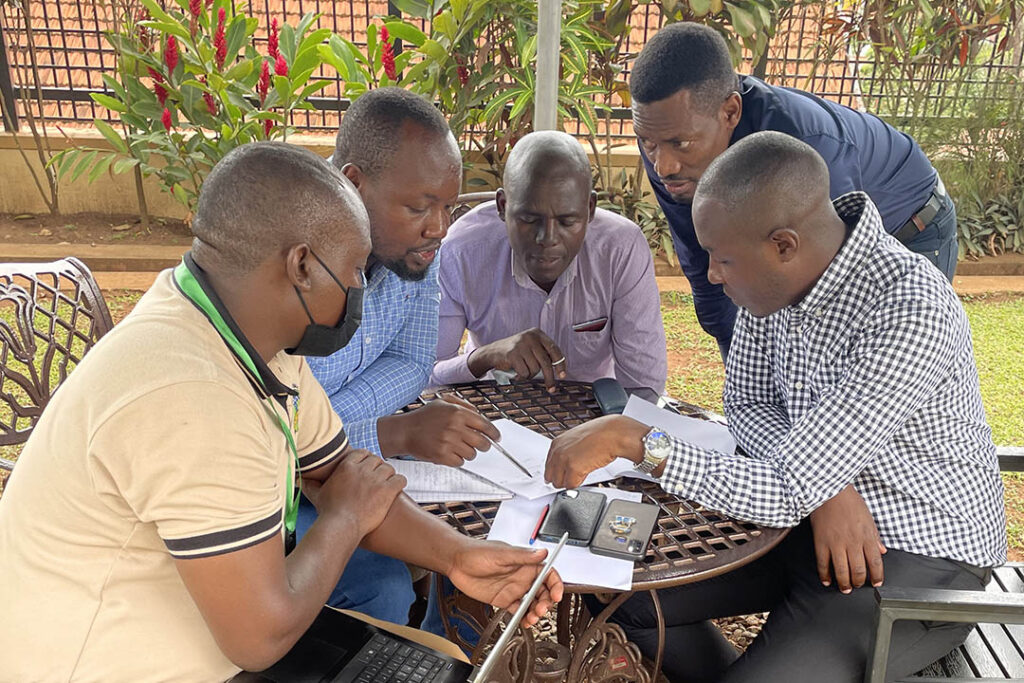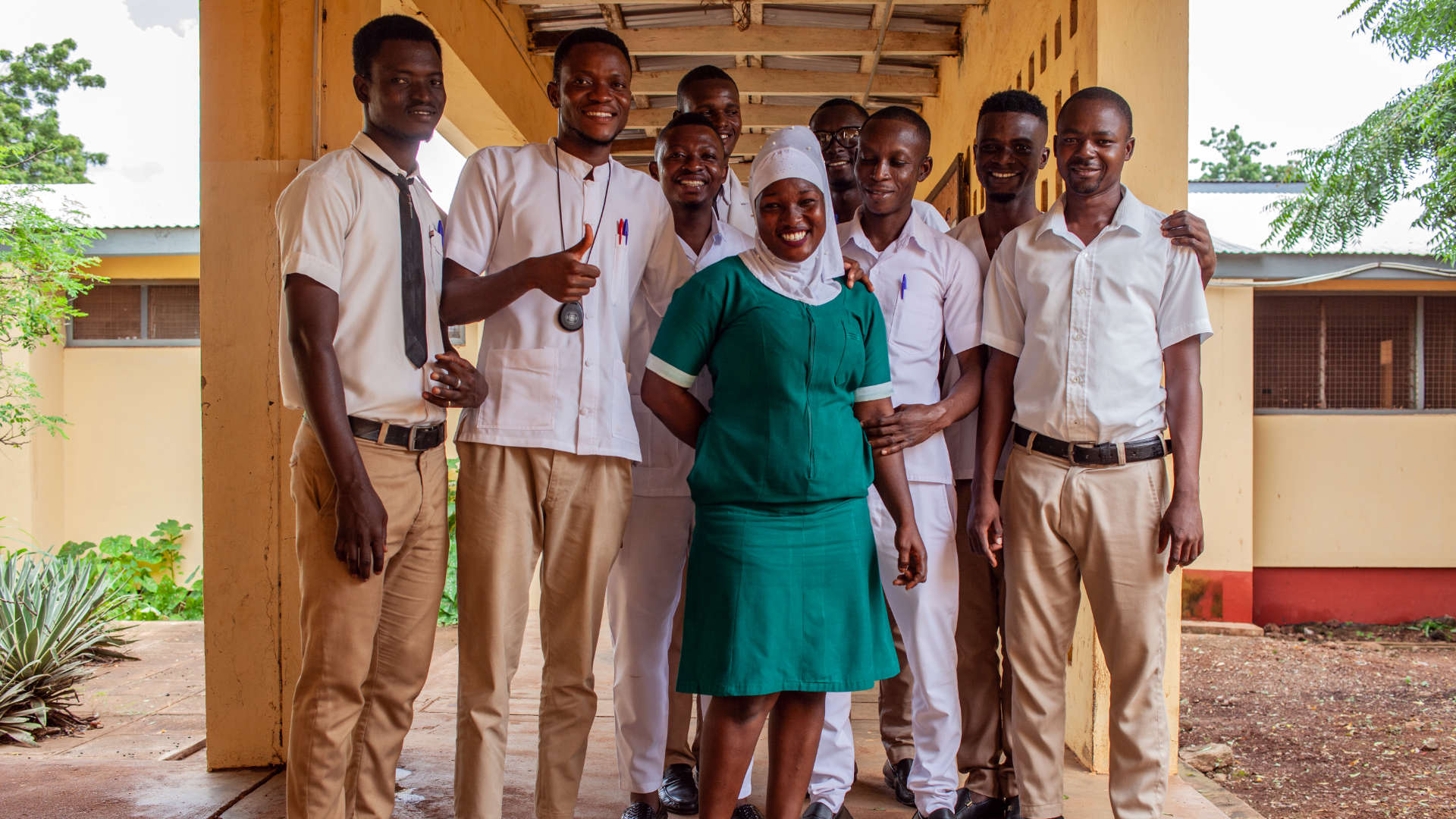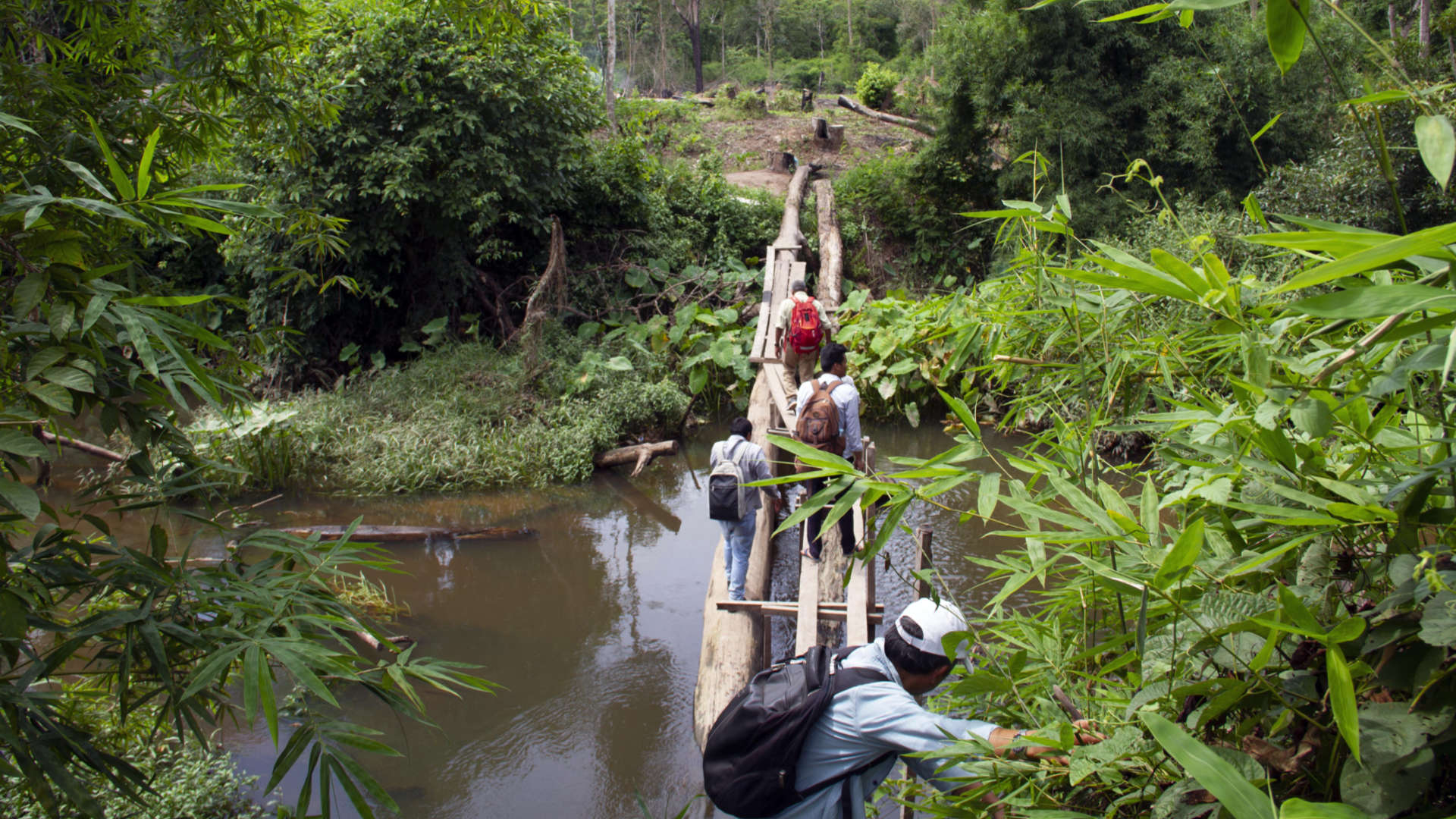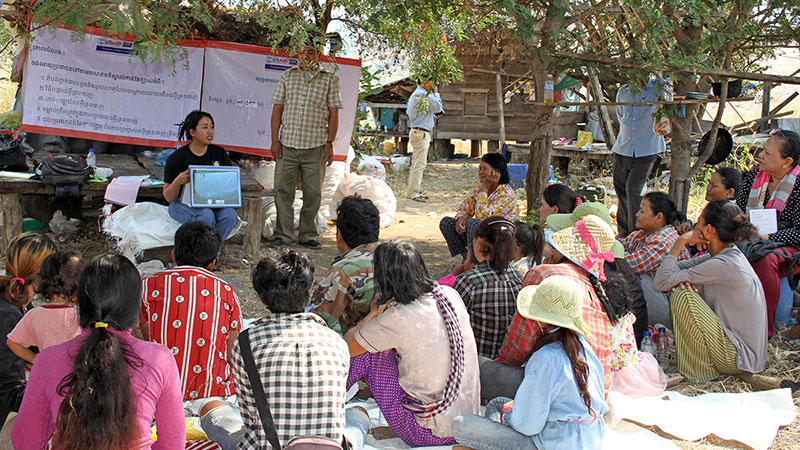A project team in Cambodia defines a health care approach. Photo credit: URC
Our Approach
URC works with government officials, civil society, and the private sector in communities around the globe to improve delivery of quality health services. We listen to local partners to identify service delivery gaps and local solutions that strengthen systems, so that people can access the care they need when they need it.
Our goal is to improve delivery of health services so that people can live healthier and more productive lives.
URC has a long history in improving the quality of health care delivery. This includes improvements at all levels of the health system – in communities, health centers, and hospitals, in villages, districts, and provinces, and at the national level – spurring changes in programs and policies.
Recognizing the importance of the private sector, we work to improve collaboration between the public and private sectors to ensure accessible, affordable, and sustainable care for communities. Our goal is to leverage the unique contributions of both sectors to improve health services.
Localization
Together with local partners, we design context-specific strategies to improve health systems. And we help design regulatory strategies such as health profession certification and licensure and facility accreditation to guarantee quality care.

URC’s approach to development prioritizes local growth, leadership, solutions, and sustainable change to achieve project goals and surpass them after projects end. That’s why more than 80% of our projects are locally led and staffed. We have a long history of collaborations with local partners and working hand-in-hand with the governments we partner with.
We use quality improvement, health workforce development, and other health system strengthening approaches to drive localization efforts with all essential stakeholders where we work – government, private sector, nonprofit, and community. We ensure the local partners we engage with develop strong skills and organizational systems to ensure compliance with donor requirements and effective program management. And we engage these partners from the beginning of projects to ensure local ownership of locally identified solutions and sustained impact.
Making a Difference
We are making a difference by:
- Supporting over 5,000 facility- and community-based teams to improve HIV; maternal, newborn, and child health; and malaria services in 17 African countries, leading to better health outcomes for women, children, and other vulnerable populations;
- Partnering with local organizations on malaria control and elimination projects in the Greater Mekong Subregion to reach vulnerable populations, resulting in Cambodia being on target to eliminate malaria by 2025;
- Collaborating with national TB programs for over 30 years to accelerate progress in TB prevention and control, working to limit and prevent TB in 24 of the 30 countries accounting for 85% of the global TB burden;
- Leading the charge to strengthen the national Zika response in 13 Latin American and Caribbean countries and facilitating collaboration and shared learning between pediatricians, nurses, and other health professionals ̶ resulting in the percentage of newborns screened for microcephaly from Zika increasing from 10% to more than 80% in less than two years;
- Developing innovative digital solutions for health workforce coaching and support, drug-resistant TB treatment, clinical decision support, and disease surveillance and reporting; and
- Spearheading decades of implementation science and research on global health priorities such as the launch of the global movement for respectful maternity care, where every woman and baby are protected from harm.
This and so much more. Through innovation, collaboration, and local solutions, we are change agents with the drive, expertise, and evidence to build a healthier world.


